A close friend of mine in my ward asked me a while ago for my thoughts regarding the following statement, by Boyd K. Packer, originally given in the Ensign, in 1979.
“The gospel might be likened to the keyboard of a piano—a full keyboard with a selection of keys on which one who is trained can play a variety without limits… How shortsighted it is, then, to choose a single key and endlessly tap out the monotony of a single note, or even two or three notes, when a limitless harmony can be played…. Some members of the Church who should know better pick out a hobby key or two and tap them incessantly, to the irritation of those around them. They can dull their own spiritual sensitivities. They lose track that there is a fullness of the gospel and become as individuals, like many churches have become. They may reject the fullness in preference to a favorite note. This becomes exaggerated and distorted, leading them away into apostasy.”
It’s an interesting rhetorical device, however, I’m a musician by trade, and I find President Packer’s analogy to come a little short. So let me take it further.
My little sister was trained to play the piano in what I’ll call the classic Mormon method… It’s not really unique to Mormons, but most of the Mormons I’ve encountered who play the instrument with any proficiency were usually trained in a similar way. Namely, they learned piano by learning to sight-read music, and allowing the music on the page to dictate where and when notes should be struck and for how long they ought to be sustained before being released.
After almost 8 years of playing piano (by far the record amongst our siblings), Erika wanted to quit. My mom asked me to help convince her not to. So I asked for $20 bucks, and I went and bought my sister a Ben Folds Five and a Journey songbook. She had the sight-reading skills to learn the notes quickly; and playing music she already loved, opened up a whole new world for her. Within days our house was ringing with 80’s classics like Open Arms, Separate Ways, Faithfully, and of course, Don’t Stop Believin’. I even broke out my guitar and jammed with her a few times. It made me wish I hadn’t quit playing piano myself after only a week and a half. Similarly, she was challenged by the jazz-infused style of Ben Folds, and it broke up her classical ideas of chord changes, timing, and fingering technique. It helped her become a more versatile pianist.
Sight-reading is an incredibly valuable skill for a musician to possess. It allows a player to approximate a performance or composition with which he or she might be unfamiliar. The player learns to process instructions (in the form of sheet music) in advance of when their fingers will need to translate them into appropriate actions, moments later. It’s also the best way to teach a person to play without constantly looking at the keys, giving them a much needed “feel” for the instrument. That’s why teaching via notation has classically been the preferred method of teaching most instruments.
However, music educators have learned in recent years, that while this method is important, even vital… students’ development as musicians is often impaired or permanently arrested unless they begin to learn theory, improvise, play by ear, and even compose at a young age. The primary reason is that most of us reach an age at which we get bored with rote learning and the monotony of a thoroughly dictated practicum. Those of us that were forced back to that keyboard over and over began to dread it, fear it, or even hate it. Students have to be given room to make mistakes and to make them repeatedly. We should all be allowed to skip church, errr… practice when we’re having a rough week. Even more importantly, we must be shown how music can elevate us… that it can make us more capable and creative. We should be exposed to the greats, so we can witness the power and liberation that music can offer us. We must be encouraged to strike our best chords out in the world for all to hear and benefit from. See where I’m going with this?
Not everything a musician needs to know can be conveyed in sheet music. There are shortcomings to the notation system that make it impossible to tell a player everything. Some examples include the subtleties of dynamics [1], the exact way a chord should be struck [2], and countless aspects of finer intuitive expression that can’t possibly be represented in the published score. It might be obvious at this moment that many, if not most of the Mormons we know, live the gospel in a similar way that most Mormons play piano. They pay very strict attention to the script. The laws. The covenants. The commandments. The leaders. That’s an important skill to achieve, but unless we move on and challenge ourselves to live the gospel in other ways, we will stagnate, burn out, and likely give up on our religion.
A highly overrated pianist in Mormondom is John Schmidt. I will likely incur some wrath for so-saying, but in most respects he is rather an unremarkable player. He is often extolled particularly for his perceived ability for improvisation. I’d venture that he’s appreciated by Mormons and few others, because most Mormons don’t listen to jazz and have never made much of an effort to learn what jazz is all about. Jazz culture and theory revolves around the idea of what I’ll call the 5 “I”s. Imagination, improvisation, imitation, (re)interpretation, and innovation. A great track to demonstrate this idea is “Stomping Grounds” by the Flecktones, a Jazz-inspired bluegrass fusion group led by an extrovert banjoist, named Bela Fleck.
It’s easy to hear the pattern of developing and modifying musical ideas in this song, because the rhythmic and melodic ideas make the rounds between all the musicians in the band. This is what jazz is mostly about. it’s a conversation (sometimes only with one person and the listener). This early Miles Davis tune will be less obvious, because the melody is only carried by the trumpet. But a few patient and attentive listens will demonstrate the level of imagination and creativity exhibited by disciplined jazz musicians.
Jazz is music’s dying lifeblood, because it cultivates the skill of improvisation, which is an essential component of a rounded musical education [3].
John Schmidt seems remarkable to Mormon sight-readers because he knows music theory. Theory is the aspect of music studies that codifies the “norms”. Whether you know it or not, we’re all familiar with the major scale (Do, Re, Mi, Fa, So, La, Ti, Do). If you sit down at a piano and play all the white keys from middle C to the next C, you’ve just played the major scale. Each note or “step” in that scale, corresponds to a major or minor “chord” [4].
Understanding the relationship of the major scale, its various modes, and the chords that correspond to each scale step in all twelve Western musical “keys”, is a functional working knowledge of music theory. A person who knows theory, can quickly learn practically any pop song once they know what key it’s in.
By trade, I’m a music producer and recording engineer. I can’t sight-read more than a single line of standard notation music to save my life, but because I know theory, I can write original songs, figure out other people’s songs, do arranging, and even write parts for instruments I don’t play. I think I’m a decent musician. I’ve likewise learned, that while I perhaps lack the kind of practice in obedience of other church members, I have a really good working knowledge of the gospel. It’s fundamentally about love, service, grace, spiritual gifts, family, selflessness, forgiveness, and personal transformation. I’d submit that understanding and applying those principles in my life has made me a pretty good Mormon, even though I think women need greater leadership in the church, and I won’t oppose marriage-equality laws. There are sight-reading types in my Elders’ quorum who wonder out-loud about my apparent grasp of the gospel, the scriptures, and church history; and my willful rejection of some institutional church practices. The truth is, the theory just gets me a long way, and I’m not as tied to the written score as they are.
Truly masterful musicians typically have what we’ve dubbed “a good ear”. An intimate sense for music born sometimes of chance, but more often born of long exposure to music and a disciplined life of musical practice. In either case it must be cultivated or it will usually be lost. This is much like the influence of the Holy Ghost. Some musicians are known for their uncanny ability to “play by ear”. Often, they marvel people by being able to imitate (sometimes flawlessly) something they’ve just heard for the first time. You might even play this kind of person the first part of a musical phrase and they could finish it in roughly “the right way” with no previous exposure to the song. They just “hear” how it’s supposed to go. I cultivated an ability to “yield to the enticings of the Holy Spirit” while on my mission. I sincerely and honestly believe in the Holy Ghost. Whether it is an actual personage of spirit, whispering guidance in my mind, or my hyperactive amygdala, I’ve learned I can rely on it. It’s that reliance that tells me I can have faith in God, this restoration, and the dream of Zion, while remaining honest to the principles in which I believe. I might miss a note here or there, but I trust whatever the ‘spirit’ is to help me stay on course.
No musician has fully realized their potential until they yield to their own creative impulse. They must take the benefit of music’s influence in their life, and then turn around and give something back. They have to contribute to the conversation. They must make an offering at the temple of good vibrations. A musician is the master of their art when they can proficiently sight read music, imaginatively improvise, play by ear, understand and apply theory, and become creators themselves, offering their unique and personal song to the world. The prophet Joseph Smith taught that one day a member of this kingdom will compose a new song, unlike any other song we know. The Lord calls it the song of redeeming love.
“All shall know me, who remain, even from the least unto the greatest, and shall be filled with the knowledge of the Lord, and shall see eye to eye, and shall lift up their voice, and with the voice together sing this new song, saying:
The Lord hath brought again Zion; The Lord hath redeemed his people, Israel, according to the election of grace, which was brought to pass by the faith and covenant of their fathers. The Lord hath redeemed his people; and Satan is bound and time is no longer.
The Lord hath gathered all things in one. The Lord hath brought down Zion from above. The Lord hath brought up Zion from beneath. The earth hath travailed and brought forth her strength; and truth is established in her bowels; and the heavens have smiled upon her; and she is clothed with the glory of her God; for he stands in the midst of his people.
Glory, and honor, and power, and might, be ascribed to our God; for he is full of mercy, justice, grace and truth, and peace, forever and ever, Amen.”
I would submit that we will not succeed in fulfilling this beautiful prophecy until we become more masterful musicians and more competent saints.
I think less of us are banging away on our hobby key, than we are each just trying to live sincere lives by the principles that most motivate and strengthen us, and I’m not sure there’s anything wrong with that. It certainly doesn’t need to be mocked or denigrated. By the same note, though we all need to continue our development. Those of us who struggle with sight-reading will have to put in some time and practice. Those of us who thrive in that world of safety, have to wean ourselves off of the security and predictability of having each move dictated for us. We have to venture forth into the world of accidentals or ‘wrong’ notes. We have to force ourselves out of the same tired scale. Perhaps we even need a complete change of key. We can go even further and learn from other cultures that hear other notes between the twelve we’ve codified. And we should always remember when we would criticize another person’s approach, that there are many ways to be a great musician and just as many ways to be a great Mormon.
As latter-day saints of every different stripe, let us become more complete musicians so that we might rejoice together and “sing unto him a new song; and play skillfully and with a loud noise.” – Psalm 33:3.
[1] How hard or soft a note is played. There is a 9-step graded system of dynamics that ranges from ppp -Pianississimo (extremely soft/quiet) to fff -Fortississimo (extremely hard/loud). As you might imagine, there are a lot of places between those 9 steps that are difficult to properly express. The player has a bit of guesswork at the relative dynamics that are appropriate to the piece. Dynamics are even more tricky when moving from piano to different kinds of instruments, that have their own, completely unique, dynamic ranges.
[2] Often all the notes in a chord aren’t sounded at precisely the same moment, but that’s all sheet music can show, unless the notes are staggered by a 32nd note or more, they are listed directly on top of each other. As in this piece by Chopin, where several of the chords are struck in a slightly staggered manner from the high note to the bass note.
[3] That’s not to say there are not innovators in popular music, but the culture of pushing musical boundaries is largely an underground one. Occasionally, luminous examples reach the surface.
Bohemian Rhapsody, Dog Problems, New Mistake, Everybody Here Wants You, The Cave, Ghost in this House, Lovesong, Driftwood, Schism, That’s The Way
[4] A conventional triad or chord consists of 3 notes: the “root” or bass note, a note a 5th scale step above it, and a note a major or minor 3rd scale step above it). In the key of C, the “normal” chords go like this: C major, D minor, E minor, F major, G major, A minor, and because of a funky relationship with the 7th note of the scale, a chord called B 7th, flat 5th. Functional knowledge of the major scale, it’s various modes, and the standard chords corresponding to each scale interval in all 12 musical keys, constitutes a grasp of basic musical theory. Sometimes this same relationship is taught as a circle of 4ths against 5ths.

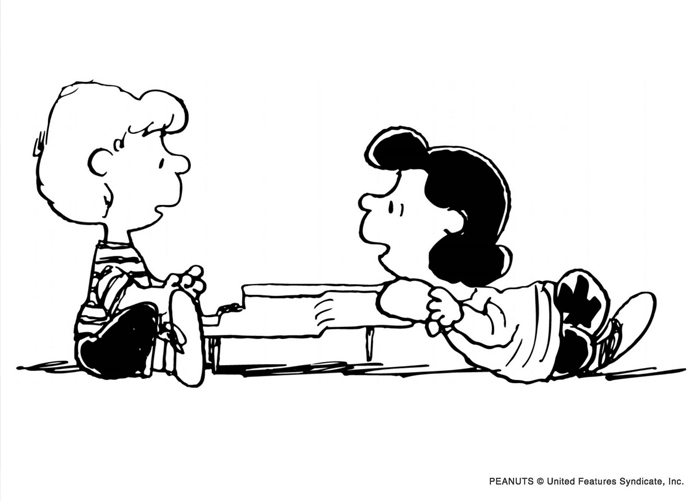
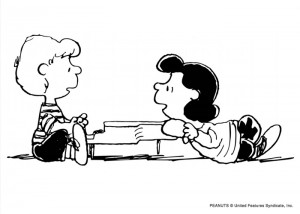
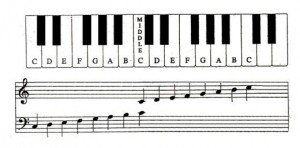
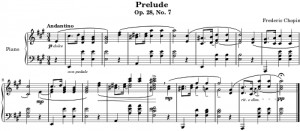
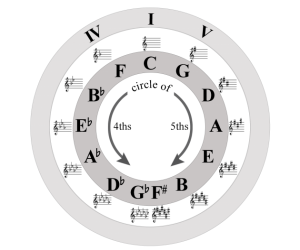



Anybody who compares the right way to live the gospel to Bela Fleck and the Flecktones’ “Stomping Grounds” is alright by me. Here is a great live version of the song: http://www.youtube.com/watch?v=ge33STgIDWA
Really great extended metaphor, Jared!
This is perfect. Except for the part about how I’m suddenly embarrassed about how obsessed I was with Schmidt while at BYU.
Guilty pleasures, Leah.
I love Bon Jovi. Like, completely love.
Hey, I really appreciate your writing. I’ve read this and the last article you wrote (thanks to /r/latterdaysaints), and I have to say…I’m pretty much a ball of tears.
I’m pregnant, mind you, so take that with a grain of salt, but I do appreciate this. I have bounced back and forth about being a Mormon since I was converted, and oftentimes I feel alienated and silly for having doubts. But I, too, appear to be banging the same few keys. And…it’s actually bad in my situation.
Thanks.
Thank you, Katherine.
I’ll be here the first Thursday of every month.